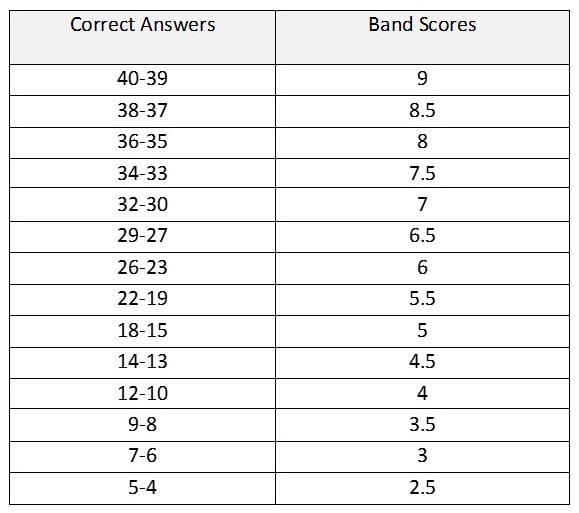The IELTS listening band score is an essential factor in determining your overall IELTS score. In this article, we will delve into the scoring system and provide you with insights to help you calculate and understand your score accurately. Understanding the requirements for your target score will pave the way for success in the IELTS exam.
Understanding IELTS Scores
All IELTS scores range between 0 and 9, including half scores such as 6.5 and 7.5. Each skill – listening, reading, writing, and speaking, is assigned a band score, and an overall band score is calculated as an average of these skills. To give you a clearer picture, let’s look at the table below:
+-----------+-----------------------+
| Skill | Band Score |
+-----------+-----------------------+
| Listening | 7.0 |
| Reading | 6.5 |
| Writing | 7.5 |
| Speaking | 7.0 |
| Overall | 7.0 |
+-----------+-----------------------+According to the IELTS website, the overall test results are calculated to the nearest 0.5 or the nearest whole band score. Let’s see how this works with a few examples:
- If your overall score is 6.1, your score will be rounded down to 6, as it is closer to band 6 than band 6.5.
- If your overall score is 6.85, your final result will be band 7 since it is closer to band 7 than band 6.5.
- If your overall score is an average of 6.25, your score will be increased to 6.5. In this case, IELTS pushes the score up to the nearest band, which is 6.5.
- If your overall score is an average of 6.75, your score will be increased to 7. This happens when your score is precisely between band 6.5 and band 7.
As you can see, the final score is rounded up or down based on its proximity to the nearest band score. To verify this information, you can visit the official BC IELTS website here.
IELTS Band Score Descriptions
To gain a deeper understanding of the level of English required for each band score, let’s take a look at the descriptions provided by IELTS. The table below illustrates the descriptions for band scores 5 to 9:
+-----------+---------------------------------------------------------+
| Band Score | Level of English Required |
+-----------+---------------------------------------------------------+
| 5 | Limited User - Basic competence in familiar situations |
| 6 | Competent User - Effective command of the language |
| 7 | Good User - Operational command, occasional inaccuracies |
| 8 | Very Good User - Fully operational command of the language|
| 9 | Expert User - Fully operational command, no inaccuracies |
+-----------+---------------------------------------------------------+For a comprehensive list of all band scores ranging from 0 to 9, you can click here.
IELTS Listening Scores
Your listening score is determined by the number of correct answers you provide out of 40 questions in the test. It is important to note that you do not lose points for incorrect answers. To get a better understanding of how your listening score corresponds to the band scores, refer to the image below:
IELTS Reading Scores (GT)
The scoring criteria for both General Training (GT) and Academic candidates are the same for writing task 2. However, for writing task 1, GT candidates must write a letter, while Academic candidates must write a report. For a detailed breakdown of the marking criteria for writing task 1 and task 2, refer to the image below:
IELTS Speaking Scores
The speaking test is the same for both GT and Academic candidates and is marked using specific criteria. To gain insight into the band scores for each criterion in the speaking test, please refer to the table below:
+---------------------------+------------------------+
| Criterion | Marking Criteria |
+---------------------------+------------------------+
| Fluency and Coherence | Band Scores 5 to 9 |
| Lexical Resource | Band Scores 5 to 9 |
| Grammatical Range and | |
| Accuracy | Band Scores 5 to 9 |
| Pronunciation | Band Scores 5 to 9 |
+---------------------------+------------------------+For a more comprehensive understanding of the band scores for speaking, consult the IELTS speaking descriptors published by IELTS.
In conclusion, understanding the IELTS band score system is crucial for your success in the exam. By knowing the requirements for your target score, you can focus your efforts on improving specific skills and areas of weakness. Keep practicing, and with dedication, you can achieve the band score you desire.
To stay up-to-date with the latest insights, tips, and tricks for IELTS, make sure to subscribe to our newsletter on englishfreelearn.com. Happy learning!

